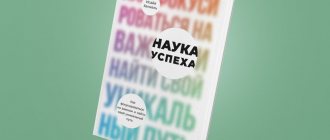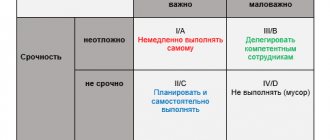How to stay healthy in a crazy pace of life
The modern rhythm of life requires a colossal expenditure of energy from a person, because few people can afford to live in a work-home schedule. The vast majority, before allowing themselves to rest, have to do a lot of things: go to a fitness club or self-education courses, first drop off and then pick up their child from kindergarten, prepare breakfast, lunch, dinner, and so on. The cycle of tasks is different for each person, but for everyone it includes a large number of points, and sometimes the body may simply not cope with the load.
What to do in such cases, how to recharge your internal batteries? First of all, we need to forget about the attitudes that force us to live in a marathon rhythm. There are many similar attitudes: to get married and have a child before the age of 30, at the same age you will certainly earn money for an apartment, a car, and so on. You are running, trying at all costs to achieve the goal set for you by society, your parents or someone else, but where is life itself in this crazy run?
“Life cannot consist of responsibilities alone,” said psychologist Anna Khnykina in an interview with aif.ru. “It’s good to be successful, but not at the cost of your psychological and physical health, so think about what attitudes force you to live in the grip of time and who imposed them on you.”
Another tip is to listen to your body. There are a number of diseases - various types of allergies, cardiovascular problems, oncology, and so on - that can appear if your schedule is too intense and your body needs a break. This is how psychosomatics works. Therefore, listen to your body more often and give up some things for the sake of your own health. And remember, under no circumstances should you work to the detriment of your normal eight-hour sleep! Healthy sleep is the key to health, and it cannot be sacrificed.
If possible, try to do things that bring you joy, and not take on a mountain of responsibilities so that someone will praise you later. The desire to earn your share of praise can kill over time, warns Anna Khnykina. It is also necessary to look for the thrill in what you do. If you need to play sports, choose a sport that brings you pleasure; you need to take advanced training courses - choose those that are incredibly interesting to you. Then, even in constant time pressure, it will be possible to live, as they say, by love.
And most importantly, don’t forget to set aside at least 10 percent of your time for yourself. Just like children in schools, adults also need recess. For example, in the morning, allow yourself to wake up calmly, and not jump up and run to the subway with curlers in your hair. Just teach yourself at least once a day to forget about things and countless “shoulds” and listen to yourself.
Trend
Statistics show that the pace of life has increased by at least 10% over the past 10 years. How was this tracked? Professor of psychology at the University of Hertfordshire (UK) Richard Wiseman studied the speed of people on the street. For his research, he visited 32 cities around the world, where he measured the speed of movement of residents. He then conducted a comparative analysis of the data obtained and a similar study conducted ten years earlier by Professor Robert Levine from California State University (USA). It turned out that the pace of life in cities is growing by at least 1% per year.
Top 10 most rushed cities in the world
as follows:
- 1. Singapore
- 2. Copenhagen
- 3. Madrid
- 4. Guangzhou
- 5. Dublin
- 6. Curitiba
- 7. Berlin
- 8. New York
- 9. Utrecht
- 10. Vienna
Watch your breath
There are situations when there are too many irritants nearby: someone’s phone vibrates, endless notifications come in instant messengers, and colleagues confuse your thoughts with their conversations.
The tension rises, and you realize that you are about to break. In such a situation, you need to turn your attention to breathing.
The effectiveness of this way to calm down has been scientifically proven. Biochemists from Stanford University have proven The Effect of Diaphragmatic Breathing on Attention, Negative Affect and Stress in Healthy Adults that there is a relationship between the depth of breathing and emotions: the faster and shallower a person breathes, the higher the degree of anxiety and tension. Deep and slow breathing relaxes and relieves tension.
Be in nature
Nature has a therapeutic effect on us: fresh air helps cope with stress and fatigue, physical activity energizes Influence of Acute High-Intensity Aerobic Interval Exercise Bout on Selective Attention and Short-Term Memory Tasks, and natural sounds reduce It's true: The sound of nature helps us relax tension level. To relax, you don’t have to go out of town - a city park or a shady square with a fountain will do.
If your day at work starts off stressful, go to the park during your lunch break. Regular walking will replace physical exercise and redirect your attention from work problems to relaxing objects around you.
Stop multitasking
Multitasking is not the super ability to do several things at the same time, but just constantly switching from one thing to another. For example, preparing a report, simultaneously checking email and responding to colleagues in the work chat.
According to the study Multitasking: Switching costs of the American Psychological Association, multitasking reduces productivity by 40% and interferes with concentration.
Due to constant switching between tasks, we feel tired and exhausted at the end of the day, although we have not accomplished everything we planned.
Multitasking is harmful not only at work, but also in everyday life. Instead of paying attention to one thing, we try to do everything at once. For example, we solve work issues over dinner, and while walking with our child we scroll through social media feeds.
To reduce the overall level of chaos and not feel like a squeezed lemon at the end of the day, learn to immerse yourself in the activity and do it mindfully. For example, if you are walking, observe the scenery, smells, sounds, and if you are having dinner with your family, enjoy good company, the taste of food and a pleasant atmosphere.
Don't teach your children to rush
One of the most useful inventions of the slow living movement is “slow parenting.”
According to its supporters, parents who turn their child’s life into endless visits to clubs, auditions and all kinds of competitions are following the wrong path.
It is much more useful to devote time to communicating with your child, during which you can find out what is really interesting to your child, and then there will be no need to waste your time and the child’s life on activities that are not interesting to him.
Switch to a flexible work schedule
According to the World Health Organization's Mental Health in the Workplace, inflexible working hours are one of the risk factors that threaten a person's mental health. That’s right: the fear of being late only increases stress. You feel this most strongly in a metropolis during rush hours, when there are traffic jams everywhere, crowding in the subway and crowded streets.
Flexible hours or remote work solve the problem, although they are not available to everyone. Try to negotiate with your manager to change your work hours. For example, make the beginning and end of the day flexible: come to work from 9 to 12, leave from 18 to 22. If your profession allows, you can work remotely from home or the nearest coworking space.
Downshifting
Some people, tired of constant stress and bustle, give up a dizzying career. They are called downshifters - those who abandoned the narrow office windows for the broad horizons of life. Those who no longer want to run and rush, but just want to enjoy life.
Perhaps you are tired of the constant rush? Perhaps there is a reason to give up some business, part-time job, financial desires imposed on you by some people or fashionable images? Or are you dreaming of getting enough sleep again? And also - to calmly walk along the embankment, instead of rushing headlong somewhere again. Or sit quietly with friends, without scrolling through the list of things you have to do tomorrow in your mind? Think about it and choose a pace of life that suits you personally.
Author: Marina Tumovskaya
Planning for a high pace of life
The cultivation of a high pace of life has led to an increase in the popularity and popularization of such a science as time management. Since the pace of life has gone crazy, and no one has added more hours to the day, you have to be content with what you have. In other words, carefully plan your life.
Here are simple rules for your attention, the observance of which, however, will require enormous self-discipline.
- Life according to plan
. In conditions of general haste, it is impossible to do without plans - for the day, for the week, for the month, for the year. Today no one writes in notebooks; everyone keeps diaries, in which they write down their affairs, calls, and meetings hour by hour. Don’t forget or miss anything - the main motto of time planning.
- Absence of spaces, emptiness, temporary “holes”
. A person who wants to “run ahead of the rest” does not just have every minute carefully thought out. He has created not only a plan “A”, but also a plan “B” - in case the meeting does not take place, the boss postpones the meeting, or a new unforeseen matter arises. Such people also have thought out activities for any case of forced waiting - so that not a single minute is wasted. While driving a car, these people learn foreign languages. Over lunch they resolve business issues. While “communicating” with their family in the evening, they read newspapers and books.
- Saving time
. And these people are constantly learning how to save time. They carefully study articles and books on this topic. And they regularly “cross out” from their activities those who, in their opinion, are chronophages, and also strive to do as many things as possible at the same time.
- Records, records, records
. And these people are constantly recording everything. Not only things and plans, but also the content of phone calls, as well as your own thoughts. Their desks are covered with sticky notes, their papers and books are littered with notes, and their phones are buzzing with reminders. People who strive to succeed today do not rely on their own memory, and the loss of a diary for them can be equated to amnesia, because the human brain is simply unable to retain the amount of information that a modern diary contains.
It is difficult to imagine that in such a situation a person would have the opportunity to enjoy life. However, numerous books on this topic advise relaxing as much and as often as possible. The question is different: is it possible to learn to relax when so many “shoulds” hang over you?..
Summary
From everything said above, we can draw a fairly simple conclusion: there is nothing impossible in getting the maximum result without giving all your best physically and mentally. To do this, you only need three things:
- Smart planning;
- The ability to rationally distribute your working time;
- Adequate sleep and rest.
Don't deny yourself these three things - and you can not only make your work more effective, but also learn to enjoy the calm process of doing it.
Yes, developing these useful skills and habits will also take time. But aren't you ready to invest a few minutes a day in the most important thing you have - in yourself?
- Tweet
- Share 0
- VKontakte
- 1
- Login to have your vote counted











